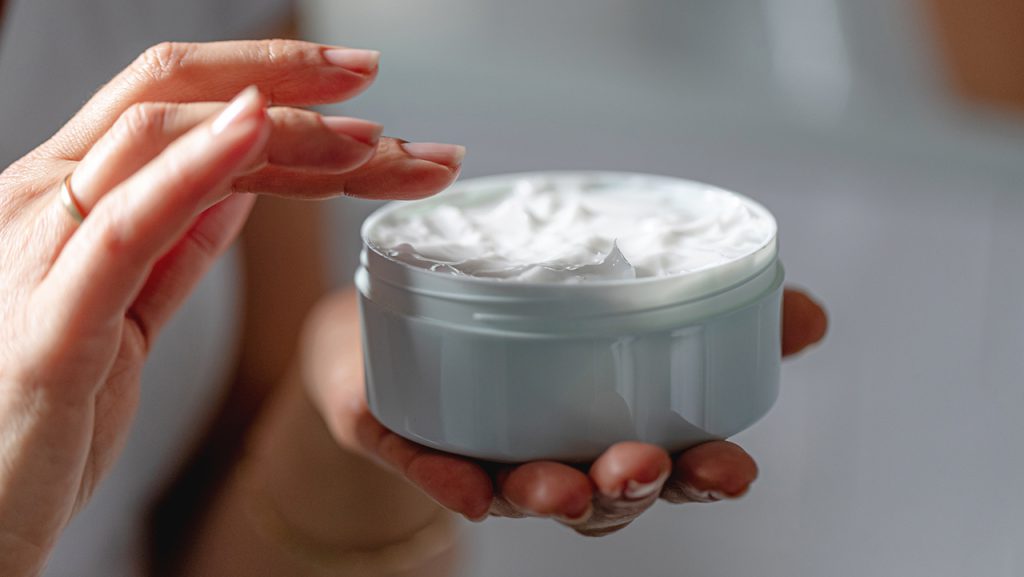The skincare products most effective at preventing the signs of aging might surprise you.
As you age, your skin loses moisture, elasticity and is prone to discoloration and hyperpigmentation. With so many anti-aging products on the market, you may be surprised to learn that the two most important are:
- Sunscreen. The sun’s UVA and UVB rays are responsible for most signs of skin aging. A broad-spectrum sunscreen SPF 30 or higher should be part of your daily skincare routine. Physical or mineral sunscreens products like those containing zinc oxide or titanium dioxide stay on the skin surface, block rays altogether, and are considered safe and effective. Chemical sunscreens tend to be more effective than mineral products, although they can also be highly absorbent and contain ingredients that enter the bloodstream, leading to calls for more studies of potential health effects.
- Moisturizer. Daily moisturizing helps the skin retain water. Moisture-rich skin shows fewer fine lines and wrinkles or discoloration. Anti-aging products are often moisturizers with retinoids as the key ingredient.
The American Academy of Dermatology Association (AAD) recommends using sunscreen and moisturizer for several weeks before moving on to additional anti-aging products. Experts agree the use of these two products together often create noticeable results over time.
Hyaluronic acid vs. retinol
Hyaluronic acid is a water-seeking molecule found in the skin. The body develops less hyaluronic acid as it ages, which causes older skin to become drier. Skincare products that contain hyaluronic acid help retain moisture. Moisturized skin shows fewer signs of skin-aging.
Retinoids are ingredients found in a variety of skincare products. Retinol is a type of retinoid that is particularly good for preventing uneven skin tone or pigmentation and smoothing fine lines and wrinkles.
While both products can be effective, anti-aging products are not one size fits all. Both hyaluronic acid and retinol products can irritate sensitive or acne-prone skin if used in high concentrations. Women with darker skin tones are at higher risk of hyperpigmentation while using retinol. Experts agree using fewer anti-aging products overall is better for your skin. A dermatologist can help explore which product is best for your skincare needs.
Is Vitamin C the next big anti-aging product?
Skincare products containing vitamin C help prevent discoloration and boost collagen, although there’s little scientific evidence to show vitamin C is more effective than either hyaluronic acid or retinol.
The order of application matters
The AAD recommends applying skincare products in the following order for best absorption:
- Wash your face.
- In the morning, apply topical lotions or products containing vitamin C.
- During the day, apply chemical sunscreen before moisturizer and physical sunscreen after moisturizer for the most effective protection.
- At night, apply topical lotions or products containing retinols.
Are you looking for a dermatologist or primary care provider to help you create a skincare plan that’s right for you? Visit the St. Elizabeth physician directory to find a provider at St. Elizabeth Physicians in Northern Kentucky and Southeastern Indiana.

